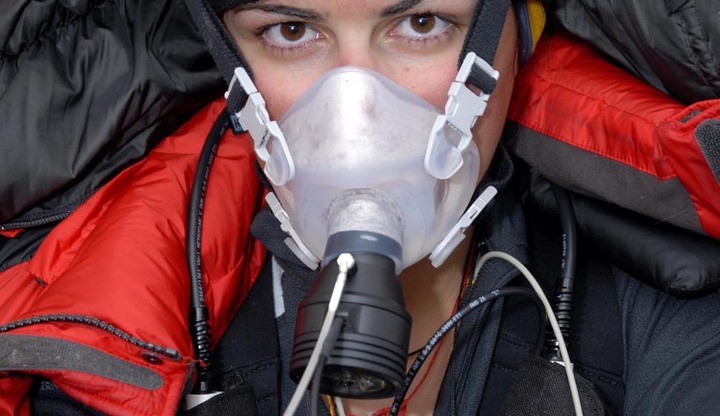What is Hypoxia?
Hypoxia, put simply, is a lack of oxygen.
Oxygen forms approximately 21% of the air we breathe and is vital for human life. Every one of the millions of cells in our body requires a continuous supply of oxygen in order to generate the energy that keeps them alive. A lack of oxygen leads to deterioration and eventually death of cells. It is this deprivation of oxygen that cells can suffer that we specifically refer to as hypoxia. Depending on where in the body these cells lie, parts of the body, just like the cells, may also deteriorate and die. The body cannot store oxygen in any way so the cells rely on a continuous supply of oxygen to keep them healthy.
Oxygen is taken from the air and travels through the body to the cells via a transport chain known as the 'oxygen cascade, summarised in a simple form below:
- Oxygen enters the body via the lungs in a process we call breathing.
- In the tiny air sacs (alveoli) of the lungs oxygen diffuses into the passing blood.
- Most of the oxygen within the blood combines with the haemoglobin contained in red blood cells.
- The heart pumps blood containing red blood cells through the circulatory system (the arteries, veins and capillaries) to its destination.
- Oxygen detaches from red blood cells within the tissues that require it then diffuses through the tissue to the cells.
Hypoxia can occur as a result of failure at any of the above stages i.e. the lungs, heart, circulatory system or diffusion through tissues. Hypoxia is a common problem in patients both at home and in hospital. These patients may have problems with their lungs which prevents effective oxygen entry into the body. These patients may require extra oxygen from cylinders in order to maintain an adequate flow of oxygen to their cells
At high altitude it is the availability of oxygen in the air which is reduced. Oxygen levels fall progressively as one ascends to altitude, with life above the summit of Mount Everest being almost impossible as a result. If one ascends at a reasonably gentle pace the body is able to adapt to the hypoxia in a process known as acclimatisation. Like sick patients in hospital, climbers attempting to venture to extreme altitudes (over 7,000m) tend to use extra oxygen to help them climb. This is because of the severe levels of hypoxia experienced when trying to climb at these altitudes.
Watch Dr Kevin Fong in the short video below as he experiences being within a hypoxic environment. This helps to show what happens to the human body when they encounter low oxygen environments be it on a mountain, in a plane or on an ICU ward.





